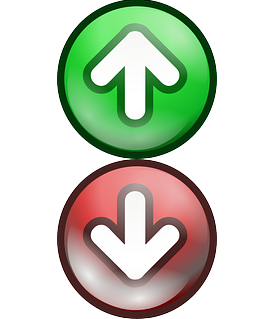
Not happy with your TOEFL score? Then you might want to get a TOEFL rescore. TOEFL rescoring is when ETS (the maker of the TOEFL) gets new raters to reevaluate your Speaking and Writing scores. But is this service actually worth using?
Read on to learn more about what a TOEFL rescore entails and how to request one. We’ll also take a look at the risks involved with TOEFL rescoring and give you tips on whether you should consider getting one.
What Is a TOEFL Rescore?
A TOEFL rescore, or score review, is when you have your Speaking and/or Writing scores re-graded. (Note that you can’t change your Reading and Listening scores.) Through this service, new raters reevaluate your Speaking/Writing responses to give you a new TOEFL score, which could be higher than, lower than, or the same as your original score.
Once a section has been rescored, the new TOEFL score will become your official Speaking/Writing score and appear on your TOEFL score report.
TOEFL rescoring isn’t free. ETS charges 80 USD for a score review of one section (Speaking or Writing) and 160 USD for score reviews of both sections (Speaking and Writing).
Most people get TOEFL rescores to try to raise their scores, often because they think ETS made a mistake or graded them too harshly. However, a TOEFL rescore doesn’t necessarily result in a higher score; in fact, most of the time your score will stay the same. This is because TOEFL raters are highly trained and follow all rubrics exactly to give you appropriate scores.
If ETS does raise or lower your score, you’ll get a TOEFL rescore refund for that section. On the other hand, if your score doesn’t change (which is the more likely scenario), you will not get any money back. So just remember that while you’re not likely to get a refund, it is indeed possible!
By the way: we have built the world's best online TOEFL course. Get online practice (TPO-sytle!) and individual grading and feedback on Speaking and Writing.
To be fair, it's possible to get a good TOEFL score studying alone. But PrepScholar is the world's most effective TOEFL course if you are worried about the TOEFL and are struggling to improve your score.
Learn how you can improve your TOEFL score by 15 points today.

How to Get a TOEFL Rescore
Getting a TOEFL rescore is pretty simple. All you need to do is download the TOEFL iBT Score Review Request Form, fill it out, and send it to ETS with your payment.
On the form, you must give the following information:
- Name
- Address
- Date of birth
- Test date
- Registration number
- Payment method (either credit/debit card number or check)
You may then fax or mail this form to ETS:
TOEFL Services
ETS
PO Box 6151
Princeton, NJ 08541-6151 USA
Fax
1-610-290-8972
You must submit your request for a TOEFL rescore within 30 days of taking the test. Once that period has passed, you will not be able to request a score review. In addition, you may not request a score review if you’ve already sent your TOEFL scores to schools.
ETS will complete your score review within three weeks of receiving your request. After rescoring, ETS will update your official TOEFL score report and send you a new paper report (if you requested one) with your revised TOEFL scores.

Will Your TOEFL Score Go Up? Go Down? Stay the Same?
The point of a TOEFL rescore is to try to get a higher Speaking or Writing score. However, as I mentioned before, a rescore doesn’t guarantee that your score will go up. Sometimes, a rescore can actually cause your score to go down! But more likely than not, your score will stay the same.
Still, you can’t predict whether your score will change or not. If your score changes at all, it generally won’t go up or down by more than 2 or 3 points. But does this change carry any risks with it? The answer is yes!
First off, any change in your official TOEFL score can affect your chances of admission to schools. If your TOEFL score goes up, you’ll likely have a better shot at getting accepted to certain schools, especially if your total score increases from less than 100 to 100 or higher. This is because many selective schools require a score of at least 100 for admission.
If your score goes down, however, you might have a lower chance of getting accepted to schools. Even worse, you might no longer meet the minimum TOEFL requirements for your schools! And since your score report won’t show you’ve had a rescore, your schools will be unable to see that your original score was in fact higher than your new TOEFL score.
Another risk has to do with money: if your score stays the same, you won’t get a TOEFL rescore refund. This might make you feel as though you wasted money on a service that didn’t ultimately change anything. Ultimately, you should only do TOEFL rescoring if you’re OK with losing 80-160 USD.
To recap, here are the pros and cons of all possible results of a TOEFL rescore:
| Pros | Cons | |
| Score Stays the Same |
|
|
| Score Goes Up |
|
None |
| Score Goes Down |
|
|

Should You Get a TOEFL Rescore?
Getting a TOEFL rescore is a big decision. For some people TOEFL rescoring is worth the risk, but for others it’s not. Below, we explain who should consider getting a TOEFL rescore—and who shouldn’t.
Consider Getting a TOEFL Rescore If …
- You truly believe you deserve a higher Speaking/Writing score. If you’re certain you did better than the score you got—and your TOEFL tutor and practice tests agree with you—then a rescore might be worth getting.
- Your TOEFL score is 1-2 points below what you need for school. If you got a 23 on Speaking but need a 24 for admission to your school, it’ll be easier (and cheaper) to pay for a rescore and hope it goes up than to retake the entire test.
- Your Speaking or Writing score is a 0—but you did the tasks correctly. It’s rare, but sometimes ETS makes mistakes. If you got a 0 on Speaking or Writing but followed the directions exactly on all tasks, definitely get a rescore!
Don’t Get a TOEFL Rescore If …
- You’ve already met your schools’ minimum TOEFL requirements. Even if your score is lower than you’d like it to be, if you’ve already met all of your schools’ TOEFL requirements, don’t risk lowering it with TOEFL rescoring.
- You’re worried about money. 80-160 USD is a lot of money, and you’ve already spent a lot on the TOEFL itself. If you’re concerned about how a rescore will affect your finances, don’t do it. (Remember, a TOEFL rescore refund isn’t guaranteed, so don’t count on getting one!)
- You’re not sure whether you deserved a higher score. If you wish you scored higher but don’t think ETS made a mistake with your scores, don’t get a rescore. Chances are, ETS gave you an appropriate score that just wasn’t as high as you hoped it’d be.
- Your score is much lower than what it needs to be for your schools. If you got a 15 on Writing but need a 22 for admission, don’t bother with a rescore. Instead, retake the TOEFL and use your prep time to focus on improving your weaknesses.

Recap: What TOEFL Rescoring Means for You
If you’re dissatisfied with your TOEFL Speaking or Writing score, you can pay 80-160 USD for a TOEFL rescore. With this service, new raters will re-grade your Speaking and/or Writing responses. The new TOEFL score will then become your official score and appear on your TOEFL score report.
There are three potential results of a TOEFL rescore:
- The new score is the same as your old score (this is the most common result)
- The new score is higher than your old score
- The new score is lower than your old score
If your score changes, you’ll get a refund for that section. If your score doesn’t change, however, you won’t get any money back.
Test takers who request a TOEFL rescore generally want their scores to go up. If your new TOEFL score is higher than your original score, you’ll have a better shot at getting admitted to your schools and meeting more schools’ minimum TOEFL requirements.
By contrast, if your score goes down, you might no longer meet your schools’ TOEFL requirements and thus have a worse chance of getting accepted to schools.
Ultimately, it’s best to consider getting a TOEFL rescore if:
- You’re pretty certain you deserved a higher score
- You’re only 1-2 points away from reaching your school’s minimum required TOEFL score
- There was clearly an error with your Speaking or Writing score
Likewise, avoid getting a rescore if:
Want to improve your TOEFL score? We have the world's leading TOEFL course.
Built by world-class instructors from Harvard and MIT, the course offers individual review, interactive lessons, and realistic online praactice, at an affordable price! It's the fastest way to get your target TOEFL score.- You’ve already met all of your schools’ minimum TOEFL requirements
- You don’t want to risk losing 80 or 160 USD
- You’re not certain you deserved a higher score
- Your current TOEFL score is far lower than what you need
What’s Next?
How is the TOEFL scored exactly? Check out our guides to TOEFL scoring and how to calculate your TOEFL score to learn more about what your score means for you and your future.
Want great scores on Speaking and Writing? Then you’ll definitely want to read our in-depth guides on how to ace TOEFL Speaking and how to ace TOEFL Writing!
Ready to improve your TOEFL score by 15 points?
Download our best TOEFL Strategy eBook (valued at $14.49) for FREE! Learn the top 5 strategies you must know to improve your TOEFL score. Download it for free now:
